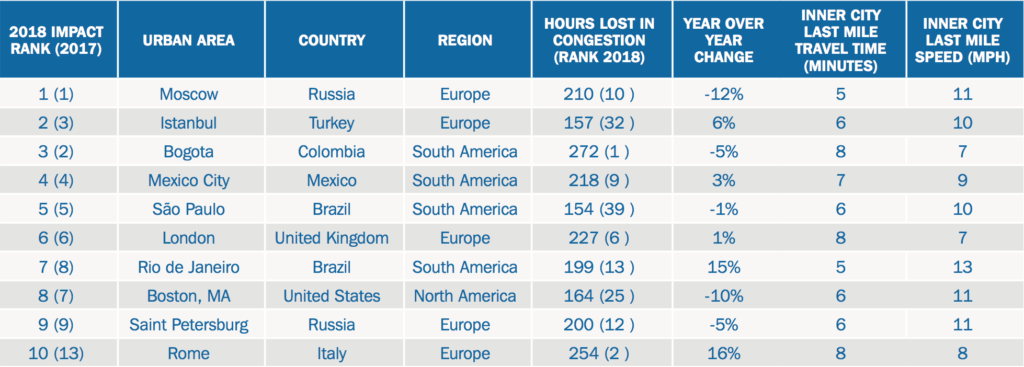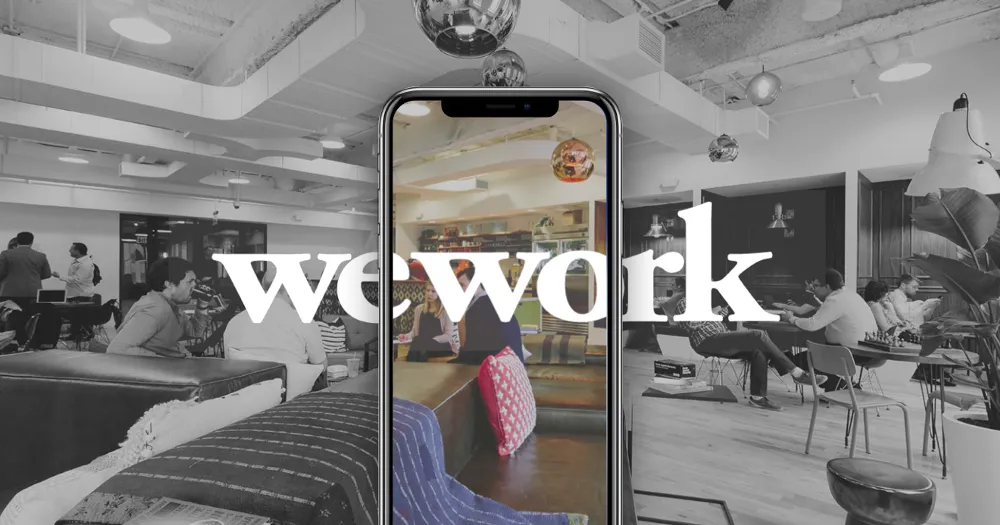
Ranked: Top 10 congested cities eating into your time and money according to data

Most of us accept being stuck in traffic as a necessary evil of living in a big city, but have you ever considered the bigger implications congested roads have on your productivity and pocket?
Drivers in the United States on average, lost 97 hours and $1,348 to traffic congestion in 2018. Gridlocks in the UK cost drivers 178 hours and £7.9 billion. Bogota drivers had to spend an extra 272 hours glued to their wheels last year – more than any other city in the world. In Dublin, cars clocked a downtown peak speed of 5.9 mph as humans walked around at 3.1 mph!
INRIX, a specialist in mobility analytics and connected cars services, has just released its 2018 Global Traffic Scorecard, and the insights are equal parts interesting and horrifying. Crunching 500 terabytes of data from 300 million different sources covering over 5 million miles of road, INRIX evaluated the traffic health and mobility trends in more than 200 cities across 38 countries. Here are the results:
The most congested cities in the world

Source: INRIX
If your city did not make it to top 10, congratulations! You can find out where it stands by accessing the complete scorecard here.
But, clearly, the worst cities you could be stuck driving in today can be found in the European region. INRIX estimates that on average, drivers’ commutes increase by roughly 30% during peak versus inter-peak hours.
Europe is closely followed by Latin America when it comes to the world’s most gridlocked cities. But that’s hardly a surprise given the rapid pace of urbanization, numerous informal settlements, unfavorable topography, and the financial volatility of the region.
If city authorities want to reduce the stress on their road networks and tackle urban mobility problems efficiently, accurate data and analytics based on traffic, parking and population movement is a must. The 2018 Global Traffic Scorecard is only a step in that direction, but it’s a step that can prove to be quite significant.
As Trevor Reed, a transportation analyst at INRIX, says, “Congestion will continue to have serious consequences for national and local economies, businesses and citizens in the years to come. If we’re to avoid traffic congestion becoming a further drain on our economy, we must invest in intelligent transportation systems to tackle our mobility challenges.”
What do you think about these findings, and what do you think cities can do to improve the situation?








